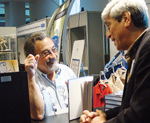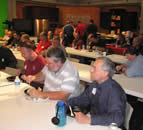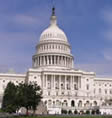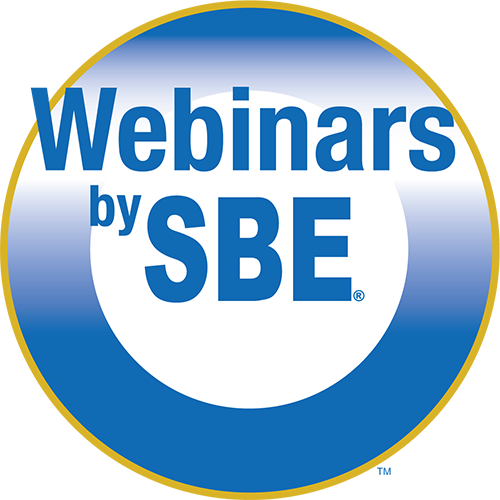ATSC 3.0 Series
Module 3: Understanding & Implementing the ATSC 3.0 Transport and Physical Layers
Instructional Method: ON DEMAND
Registration and PricingSociety of Broadcast Engineers
Overview
Module 3 of the SBE ATSC 3.0 webinar series covers the practical implementation aspects of the ATSC 3.0 system at the Transport and Physical Layers, including their interconnection and inter-layer communications. It is based largely on ATSC standard A/324 and several of its coming extensions. The webinar will examine notional organization of equipment in the system and the protocols that connect the various system elements. It also will look at the wider system context in which the Transport and Physical Layer components are installed and by which they are controlled. Equipment to be covered in detail are Broadcast Gateways and Exciters and the Studio-to-Transmitter Links that interconnect them. Protocols to be covered include the Data Source Transport Protocol (DSTP), the ATSC 3.0 Link Layer Transport Protocol (ALPTP), the Studio-to-Transmitter Link Transport Protocol (STLTP), Error Correction Coding, Security elements, and several other aspects of the systems that deliver ATSC 3.0 data to transmitters and control their emissions. Also covered will be implementation of Single-Frequency Networks (SFNs), Channel Bonding, and other modes of operation of the ATSC 3.0 Physical Layer.
ATSC 3.0 Webinar Series
-
Module 1: Introduction to ATSC 3.0, ON DEMAND
- Module 2: Overview of the Physical Layer, ON DEMAND
- Module 3: Understanding and Implementating the ATSC 3.0 Transport and Physical Layers, ON DEMAND
- Module 4: Transport MMT, ON DEMAND
- Module 5: ATSC 3.0 ROUTE Protocol,ON DEMAND
- Module 6: Advanced Emergency Information System, ON DEMAND
About Your Instructor: S. Merrill Weiss, Merrill Weiss Group, LLC
 S. Merrill Weiss is a consultant in electronic media technology and technology management and has been involved in the development of television technology and industry standards for more than four decades. His career spans 51 years and includes 42 years in managment and consulting. He currently chairs SMPTE work on the Archive eXchange Format (AXF). Merrill participated in the work of the FCC Advisory Committee on Advanced Television Service that led to what now is called ATSC 1.0. He has participated in ATSC standardization for over 30 years, in the documentation of what became the first ATSC Digital Television Standard more than two decades ago, and, over the past seven years, in most of the work on development of ATSC 3.0, chairing a number of its activities, including drafting of the A/324 Scheduler/STL/SFN document. Merrill has presented well over 100 technical papers at industry conferences and meetings. An SBE member since 1968, he helped to form the Philadelphia SBE chapter and is certified as a Professional Broadcast Engineer (CPBE). He has been recognized for industry excellence through a number of awards and, most recently, was the 2018 recipient of the IEEE BTS Jules Cohen Award for Outstanding Broadcast Engineering. He is a member of the Academy of Digital Television Pioneers. He holds six patents, all in the areas of RF transmission and Single-Frequency Networks (SFNs), and he is a graduate of the Wharton School of the University of Pennsylvania.
S. Merrill Weiss is a consultant in electronic media technology and technology management and has been involved in the development of television technology and industry standards for more than four decades. His career spans 51 years and includes 42 years in managment and consulting. He currently chairs SMPTE work on the Archive eXchange Format (AXF). Merrill participated in the work of the FCC Advisory Committee on Advanced Television Service that led to what now is called ATSC 1.0. He has participated in ATSC standardization for over 30 years, in the documentation of what became the first ATSC Digital Television Standard more than two decades ago, and, over the past seven years, in most of the work on development of ATSC 3.0, chairing a number of its activities, including drafting of the A/324 Scheduler/STL/SFN document. Merrill has presented well over 100 technical papers at industry conferences and meetings. An SBE member since 1968, he helped to form the Philadelphia SBE chapter and is certified as a Professional Broadcast Engineer (CPBE). He has been recognized for industry excellence through a number of awards and, most recently, was the 2018 recipient of the IEEE BTS Jules Cohen Award for Outstanding Broadcast Engineering. He is a member of the Academy of Digital Television Pioneers. He holds six patents, all in the areas of RF transmission and Single-Frequency Networks (SFNs), and he is a graduate of the Wharton School of the University of Pennsylvania.
SBE Recertification Credit
The completion of this webinar from Webinars by SBE qualifies for 1 credit, identified under Category I of the Recertification Schedule for SBE Certifications.
Registration and Pricing
Registration for each module will be done separately. Click Register Now below, to register for Module 2.
SBE Members: $62
SBE MemberPlus Members FREE
Non-Members: $92
SBE MemberPlus members - when registering, be sure to click on the MemberPlus link to activate your MemberPlus benefit to register for free. Not an SBE MemberPlus member? For more information, see below.
If you have questions regarding this webinar, contact Cathy Orosz via email or by phone at 317-846-9000.
More information
The ATSC 3.0 series, and all new SBE webinars presented in 2020, are included at no additional cost for members who renew or join using the $175 SBE MemberPlus membership option. You get all RF 201 modules, plus access to all archived SBE webinars and any new live webinars SBE presents through March 31, 2020, all for no extra cost. Members can renew and newcomers may join online at the SBE website using the SBE MemberPlus option.
Access to the SBE webinars through the SBE MemberPlus program is limited to the MemberPlus-purchaser only. You are not permitted to distribute, sell, copy, share, project or otherwise make the webinars available to any other individual or group without express written permission by the SBE.










